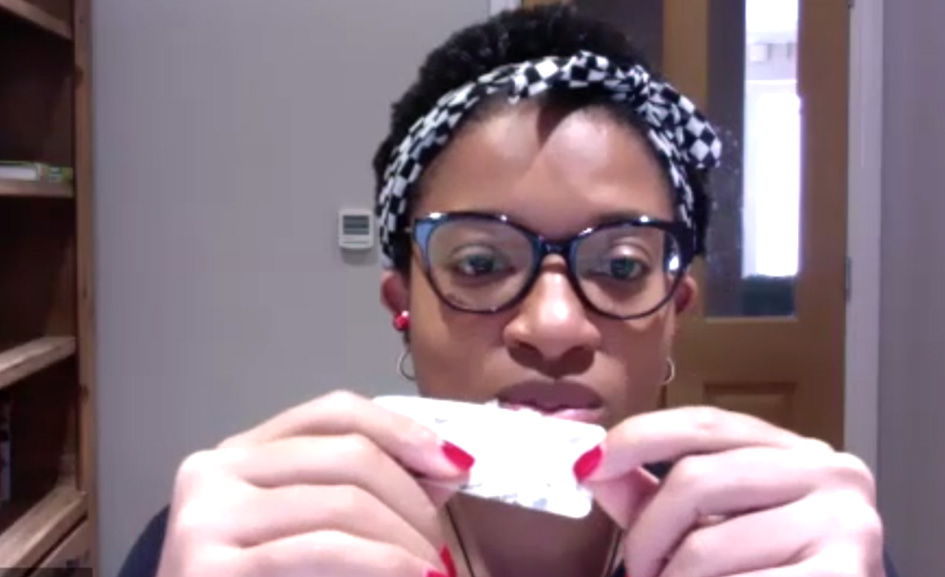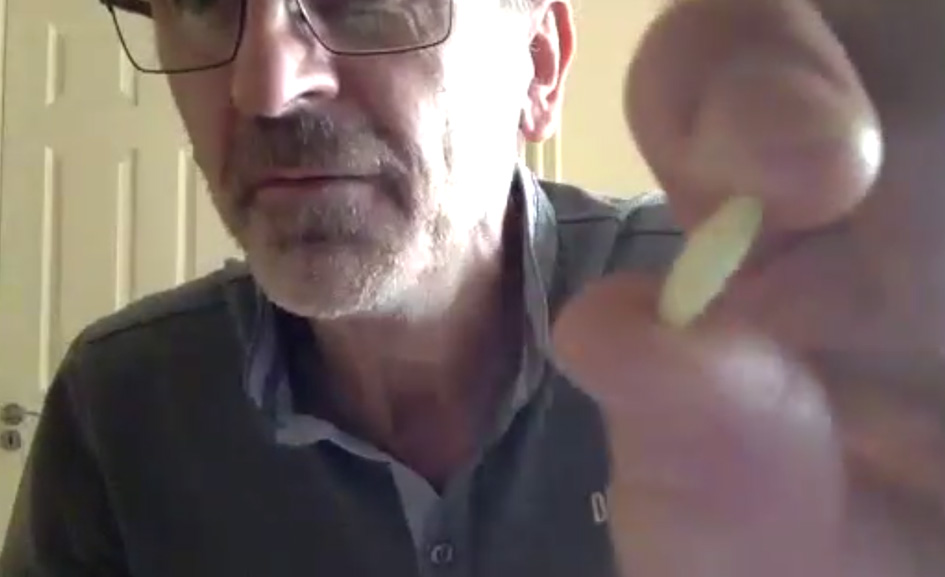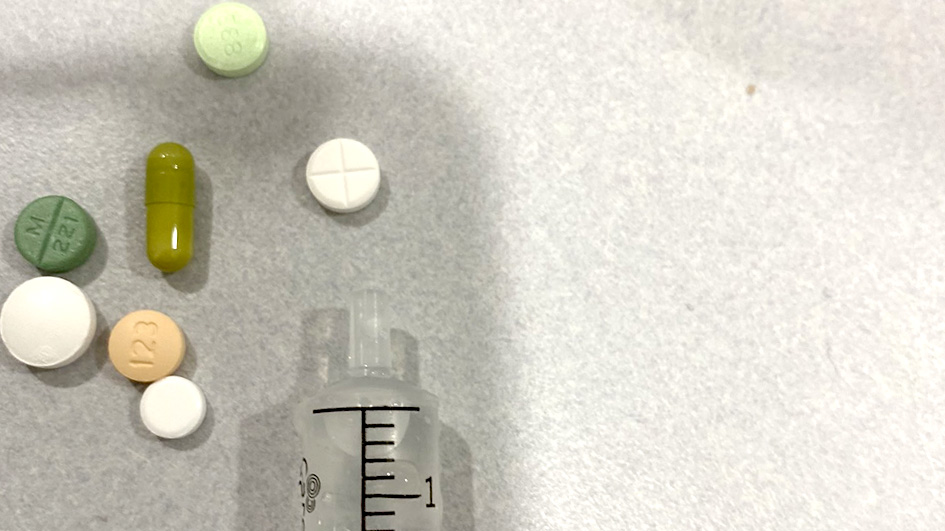For some, it might be unlocking the door to their house whilst for others, it might be putting their seat belt on in the car. Everyone struggles in their own unique way. However, one thing that comes up time and time again is the effort and stress required to take their medication. Many of the widespread medications for Parkinson’s come in the form of tiny pills wrapped in generic blister packs, rendering it hard enough for a healthy person to open, but near-on impossible for someone with Parkinson’s to open without breakage or dropping. This medication is essential, and many will take it 3-4 times a day, and some even more. One would then hope that this routine task would be simple and stress-free, but instead it has been a burden many have had to carry on their backs.
Omotola Thomas knows this all too well. She was diagnosed with early-onset Parkinson’s at the age of 35 and since then she has been heavily involved in raising awareness for Parkinson’s, especially in Africa where the disease often goes untreated. Her actions, such as raising over $10,000 for Parkinson’s charities, have been an inspiration to many people.

On September 2nd, after years of struggling with her medication, she decided to finally speak out. Her video, which was posted on Twitter and can be seen below, is eye-opening, and could not demonstrate more clearly the difficulty faced by those with Parkinson’s.
The response from the video was overwhelming, and now Omotola has started a campaign to #repackagethepackaging, which is encouraging people with Parkinson’s to fill out a survey and tweet a video of themselves opening their medication. The goal is to convince pharmaceutical companies to make their medication packaging Parkinson’s-friendly. We interviewed Omotola to hear more about the campaign and her frustrations with this issue.
Omotola’s mission
For her, this campaign came as a complete surprise. When she originally tweeted Omotola says that she was just “trying to connect with people” because she knew there had to be other people who are struggling with this, but she “didn’t know it would turn into what it is now”.

We asked her about the frustration that led her to take action. Taking her medication, which she does 3-4 times a day, has always been “very stressful”, since more often than not the pills will either snap in half, crumble or fall on the floor as she pushes them out of the packaging.
“Sometimes I don’t even bother with the stress of taking medication”, she says, knowing full well the implications of not taking them. She ends up paying for this when her symptoms deteriorate later in the day, but the momentary stress caused by taking the medication can be so overwhelming that it leaves her little choice.
On the path to a solution
For many, the frustration is exacerbated by how fixable the problem is. “The issue is that nobody is talking about it,” said Omotola. “Nobody knows how much involvement patients have had with the design of the packaging”. It is clear to Omotola that whatever the solution is, consultation with people with Parkinson’s must form a pivotal part of that solution.
“Strength in numbers” is what Omotola likes to say. If enough people with Parkinson’s engage in the campaign through completing the survey and tweeting a video, she believes it could help initiate a consultation with the pharmaceutical manufacturers.
She is not alone in thinking this, for 55-year-old Gary Boyle from Dublin has had first-hand experience of communicating with pharmaceutical companies. “There was a very serious crisis about 18 months ago”, Gary said, “where there wasn’t going to be enough Sinemet in stock, which is the key Levodopa drug”. After doing some research, Gary found out that the drug was mostly manufactured in Ireland, on his doorstep. He decided to contact them, along with others in his community.
“Parkinson’s is something that we can’t control, this drug is essential,” said Gary. “What are we going to do about it? Do you not have enough of it?”
The response was immediate. They urgently requested a meeting and ended up bringing forward their plans to get the drug back to market. Gary’s endeavour illustrates the power of engagement in effecting change for people with Parkinson’s and gives hope to Omotola that her campaign could be a success if they get enough people onboard.
Gary’s journey

For Gary, the diagnosis came completely out of the blue 11 years ago when he was 44, and he ended up spending the first five years of his Parkinson’s journey ignoring the symptoms. As the disease became more severe, he made a concerted effort to start fighting it by getting as fit as possible and is now an active member of the Parkinson’s community.
The issue of medication packaging is also something Gary feels very strongly about. He explained to us the technical difficulty involved in removing the pills from the blister pack.
“There’s five on one side and five on the other side and a tiny bit of plastic on the end. The directions they give us is ‘press out the pill gently’, but you’ve got nothing to hold onto to press the pills out, they’re right at the very edge of the plastic. It’s criminal.”

This is something Gary has suffered with throughout his diagnosis. When he first got prescribed medication, he simply “couldn’t understand” how he was prescribed pills of that size, given the problems with his hands and fingers. The way he saw it was that it was “extremely stressful on top of an already stressful situation.”
The importance of raising awareness
The problem, according to Gary, resonates with what Omotola said: manufacturers, consultants and the public simply aren’t aware that this is an issue. When Gary was giving a talk at a conference about two years ago to a room of specialist nurses, consultants, and GPs, he asked three consultants in the front row to remove the pills correctly from the packaging. Not a single person managed to do it without breaking them. At the end of Gary’s talk, one of the consultants came up to him and said, “I have never had to do that before and I had no idea it was like that.”
 This lack of awareness is the root of the problem, according to Gary and Omotola. For them and likely many more people with Parkinson’s, it seems clear that there hasn’t been enough consultation with regards to the packaging, and if the manufacturers became aware of the scale of the problem, they would potentially consider a solution. The survey and video campaign aim to deliver this awareness to the manufacturers and the general population, and hopefully make permanent changes to the consideration we give to patients about their medicine.
This lack of awareness is the root of the problem, according to Gary and Omotola. For them and likely many more people with Parkinson’s, it seems clear that there hasn’t been enough consultation with regards to the packaging, and if the manufacturers became aware of the scale of the problem, they would potentially consider a solution. The survey and video campaign aim to deliver this awareness to the manufacturers and the general population, and hopefully make permanent changes to the consideration we give to patients about their medicine.
When it comes to managing Parkinson’s disease, anyone would agree that the most important thing is improving the quality of life. There is no doubt that stress will still exist in various forms, uniquely for different people, but the core message comes back to reducing the stresses, one step at a time. For a problem as easily fixable as this, the community believes that “now is the time to talk about it”. And as Omotola would say, “strength in numbers”.
Thank you to Omotola, Gary, Richelle, KW_old school, and Johnny for contributing to this article.